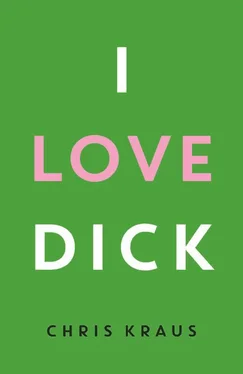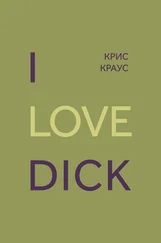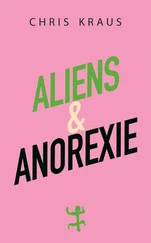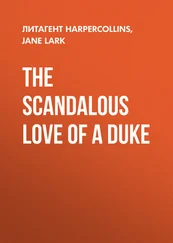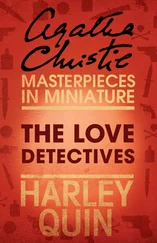Regards, Dick
* * *
A strange coincidence. Sylvère already was familiar with Georges Lapassade (the name means “fling” in French argot). In fact, Sylvère knew Lapassade very well. In Paris, 1957 trance-master Lapassade was at the Sorbonne, practicing an early form of psychodrama. Among the puzzled volunteers was a first-year student by the name of Sylvère Lotringer, who was waiting to leave school the following year with the French mouvement to lead a Zionist kibbutz in Israel. Georges Lapassade was fascinated by this ambitious youth who had no personal ambition.
The rhetoric of therapy revolves around belief in personal choice. Until then Sylvère never thought he had any. Georges Lapassade suggested the unthinkable to Sylvère: that he refuse to go to Israel and leave the Zionist mouvement . Under the guidance of Lapassade, Sylvère wrote a formal resignation letter to the comrades who’d been his extended family since age 12. And so he never went to Israel and stayed in school.
The taxi was approaching Houston Street. Eagerly, Chris opened the envelope addressed to her and started reading. It was a xerox copy of Dick’s letter to Sylvère.
She gasped and breathed under the weight of it and got out of the cab and showed her film.
Afterword by Joan Hawkins
THEORETICAL FICTIONS
Critics OFTEN don’t seem to like Chris Kraus’ “NOVELS” much. I say “novels” (in quotes) because I’m not entirely sure Kraus’ works belong in the generic category of “novel.” Rather, as Sylvère Lotringer has noted, Kraus’ prose works constitute “some new kind of literary form,” a new genre, “something in between cultural criticism and fiction” ( I Love Dick 258, 43). Kraus herself has called an early manifestation of this genre-bending “Lonely Girl Phenomenology” (137). I prefer to call it theoretical fiction.
By “theoretical fiction” I don’t mean books which are merely informed by theory or which seem to lend themselves to a certain kind of theoretical read—Sartre’s Nausea , for example, or the nouveaux romansof Robbe-Grillet. Rather, I mean the kind of books in which theory becomes an intrinsic part of the “plot,” a mover and shaker in the fictional universe created by the author. IN Kraus’ “novels,” debates over Baudrillard and Deleuze and meditations on the Kierkegaardian Third Remove form an intrinsic part of the narrative, where theory and criticism themselves are occasionally “fictionalized.”
BUT although theory plays such a key role in Kraus’ books, theoretical discussion is often erased from reviews of HER work. I Love Dick , her first book, is generally described as the story of Kraus’ unrequited love for cultural critic Dick Hebdige.
“Who gets to speak and why…” Kraus writes, “is the only question” (191). I would modify that as follows: who gets to speak, who gets to speak about what, and whyare the only questions. Certainly they’re the questions which even favorable critiques of Kraus’ work have led me to ask. Why are Kraus’ “novels” mainly inscribed within a genre she has termed “the Dumb Cunt’s Tale” (27)? Why do even art reviewers tend to edit, censor, filter out certain key aspects of her work? I can’t answer these questions, BUT I can try to redress the balance a little BY TALKING about the aspects of Kraus’ art which I believe have OFTEN been overlooked.
I Love Dick is divided into two parts. Part One: Scenes from a Marriage lays out the parameters of the love story—the unifying emotional and narrative device of the book. It reads, the late Giovanni Intra writes, “like Madame Bovary as if Emma had written it.” Certainly, Madame Bovary is the literary analogue that Chris and her husband Sylvère use. In one memorable segment, Sylvère writes to “Dick” about his wife, “Emma,” and signs himself “Charles.” “Dear Dick, This is Charles Bovary” (110–112). Chris joins in the conceit when she tells the reader, in an expositional aside, that “sex with Charles did not replace Dick for Emma” (113).
But Madame Bovary isn’t the only literary reference. “I’m thrown into this weird position,” Chris tells Dick in her first letter to him. “Reactive—like Charlotte Stant to Sylvère’s Maggie Verver, if we were living in the Henry James novel— The Golden Bowl ” (26–27). And when he’s not thinking of Flaubert, Sylvère refers to Chris’ infatuation with Dick as the ’90s equivalent of a Marivaux comedy. But since much of the plot is driven by letters, written by a couple who are attempting to seduce a third party into some kind of love-art projet, the book also bears a slight resemblance to Liaisons Dangereuses . Like LD, I Love Dick is self-reflexive as hell, as Sylvère and Chris continually critique and comment upon each other’s prose, arguments, and plot-lines. Like LD, I Love Dick establishes a fictional territory where adolescent obsession and middle-aged perversity overlap and intersect, a territory where the relationship between “always for the first time” and a sort of jaded “here we go again” can be explored (in one letter Chris even refers to herself and Sylvère as “libertines,” a term that invokes both Laclos and Sade). And, as in LD where the relationship between Valmont and the Marquise de Merteuil is the one that really counts, the most compelling and enduring relationship in I Love Dick is between the two people who initially seem to have grown a little too used to one another. As one perceptive critic observes, the reader-voyeur ultimately cares less about whether Chris sleeps with Dick than whether she stays with Sylvère (Anne-Christine D’Adesky, The Nation, 1998).
For anyone who likes to read literature, I Love Dick is a good read. But the literary references should also cue us to the textual savvy of the people who populate the piece. These are people who dig each other’s references (32), who analyze and critique each other’s prose, who are very aware that the literary form itself “dictate[s] that Chris end up in Dick’s arms” (67). So it’s strange that critics have tended to treat I Love Dick as more of a memoir than fiction, as an old-fashioned text which we could read as though the past twenty years of literary theory about the signifying practices of language had never happened.
“There’s no way of communicating with you in writing,” Sylvère writes to Dick at one point, “because texts, as we all know, feed upon themselves, become a game” (73). And it’s this self-cannibalizing, self-reproducing, viral and ludic quality of language and text that critics seem to have largely ignored in writing about the book.
I Love Dick opens with the account of an evening Chris Kraus, “a 39-year-old experimental filmmaker,” and her husband Sylvère Lotringer, “a 56-year-old college professor from New York,” spend with “Dick…an English cultural critic who’s relocated from Melbourne to Los Angeles” (19). Dick, “a friendly acquaintance of Sylvère’s,” is interested in inviting Sylvère to give a lecture and a couple of seminars at his school (19). Over dinner, Kraus writes, “the two men discuss recent trends in postmodern critical theory and Chris, who is no intellectual, notices Dick making continual eye contact with her” (19). The radio predicts snow on the San Bernadino Highway and Dick generously invites the couple to spend the night at his house. “Back at Dick’s, the night unfolds like the boozy Christmas Eve in Eric Rohmer’s film My Night at Maud’s ,” Kraus notes (20). Dick inadvertently plays an embarrassing phone machine message left for him by a young woman, with whom “things didn’t work out” (22). Sylvère and Chris “come out” as a monogamous hetero-married couple. Dick shows them a videotape of himself dressed as Johnny Cash, and Chris notices Dick is flirting with her. Chris and Sylvère spend the night on Dick’s sofabed. When they wake up the next morning, Dick is gone.
Читать дальше
Конец ознакомительного отрывка
Купить книгу
